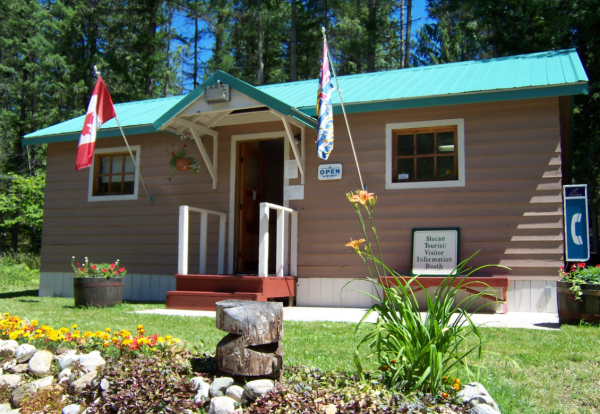
Funding success for a Slocan micro-hydro project

Springer Creek Campground, near the proposed Slocan City micro-hydro site
Funding success for a Slocan micro-hydro project, recently announced, demonstrates that consensus-based vision, with a large measure of determination, can make all the difference when it comes to making big things happen in small places.
Two years ago, the Village of Slocan council renewed its commitment to the development of the Springer Creek micro hydro power project, with an estimated cost of $3.4 million — a very big ticket item in a tiny village (pop. 272).
At its February 2015 meeting, council authorized the required work for successful development of the project based on environmental, engineering, and economic studies which had been developed since 2010.
Mayor Jessica Lunn said the project would create a revenue stream to help fund community development. Patricia Dehnel, chief administrative officer for the Village of Slocan, said the annual net revenue from the hydro project was projected to be $50,000.
“Energy produced by the project will be sold to BC Hydro under the Standing Offer Program,” said Dehnel, who added that any employment opportunities will come in the construction stage and management/operations stage.
“Council sees the project as an alternative revenue source to replace the 60 per cent loss in industrial tax revenue base with the closure of the mill in 2011,” said Lunn at the time. could help fund future planning for economic development and diversification.
The mill in downtown Slocan was demolished in 2014.
The envisaged project included a small weir structure on the creek, one that would not store water. A portion of a stream’s flow would be diverted into a pipe from Springer Creek in the upper canyon above the upper falls, and be returned to the creek before the lower falls near the village campground. The drop in elevation of the diverted water would spin a turbine and generate electricity.
The Village hoped the project would be generating revenue as early as 2016.
The Spinger Creek Micro Hydro project costs were estimated to be $3.4 million. Council agreed to seek 2/3 funding from the provincial and federal governments — the remaining funds would have to be covered by the village, who as proponent would have to identify the source(s) of its share of the project’s cost.
Council committed to use a portion of its reserve fund, and apply for grants from other funders including Columbia Basin Trust, the Southern Interior Beetle Action Coalition, and Southern Interior Development Initiative Trust. If necessary, they agreed to borrow a maximum of the $1.3 million dollars, which would require a referendum, to secure the one third portion of funds needed to develop the project, assuming the village’s planned application was successful.
Fast forward to March 2017.
Slocan mayor Lunn reports the village’s application has been approved, with $2.4 million — half from Ottawa, half from Victoria — confirmed for the micro hydro project.
In an article by Jan McMurray appearing in the March 26, 2017 Valley Voice, mayor Lunn was quoted as saying, “We are absolutely thrilled. The project will allow us to generate almost as much power as we currently consume, will contribute to our economic sustainability, and will build our capacity to invest in our community for generations to come. Ultimately, it will provide us with a localized source of renewable energy.”
McMurray further reports that Lunn stated the Village continues to work on permitting, and securing additional sources of financing to help cover the remaining $1.2 million the project will require. meaning construction may not start this year. She expects to be able to provide a more detailed update soon.
